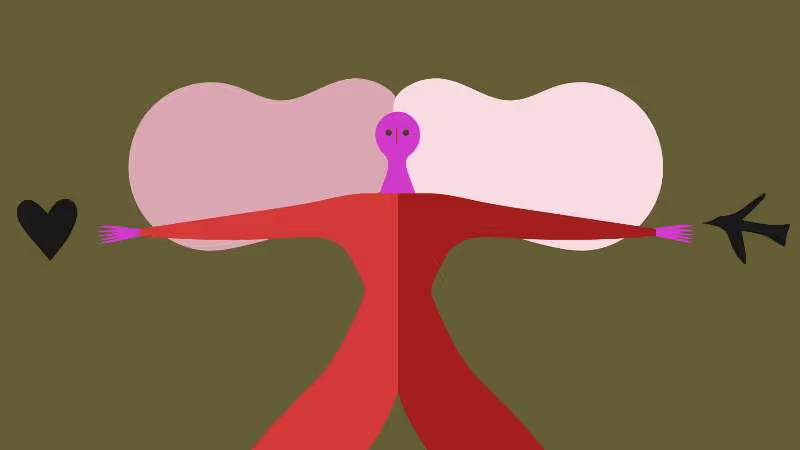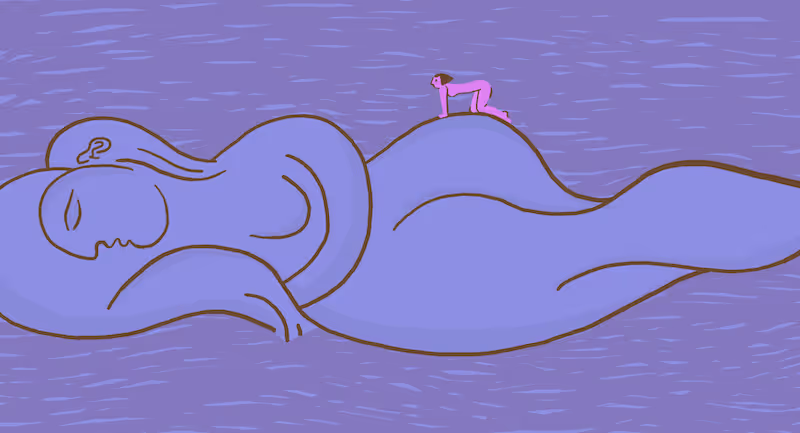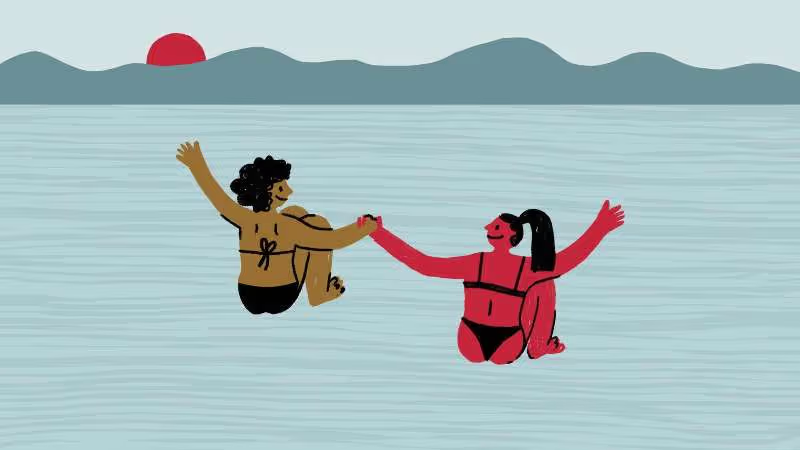My monthly newsletter and workshop is meant to inspire you to reflect, act, and develop greater confidence and relational intelligence in all of your relationships. This month's theme is: Risk.
Shall We Begin?
Hitchhiking may be the perfect opposite of pandemic behavior. I spent years on the roadside with my little sign asking to be driven across the world. In the 70s, it was a popular way to travel if you were young and broke. It’s how I first saw the United States at seventeen-years-old. My boyfriend and I flew to California from Brussels for a greyhound trip along the west coast, but by the end of the trip, we had barely used our passes, opting instead to stick out our thumbs and see where life would take us.
We stayed with missionaries in Utah, hippies in a Colorado commune, and a single father in a trailer in Baton Rouge, Louisiana. We saw Los Angeles and New York City, and a suburb—for the first time—in West Orange, New Jersey. We lived by the kindness of strangers who would pick us up and sometimes invite us into their homes, showing us glimpses of lives we never knew existed. We were curious and open—and we took risks that my parents would prefer not to know. There were times it went south. But there were far more times when our tribulations yielded wonderful surprises. We took risks on strangers and they took risks on us foreigners.
I’ve been thinking about my hitchhiking adventures as I confront my re-entry anxieties. After a year of learning how to keep a constant six-foot radius around me, it’s hard to believe how much of my youth was spent sitting with strangers in small cars. I also used to walk on the streets of New York, looking attentively at strangers’ faces. Now, I put my head down and turn away if they get too close. I know I’m not the only one struggling with how to open back up to others even though it’s what I so desperately want. Restrictions are starting to loosen up here in the states. But after we’ve lived so long in a state of prolonged uncertainty, how are we meant to reconnect safely with the unknown in a way that invites excitement rather than fear? And how can we even feel excited when so much of the world is still grappling with the worst phases of this?
Our collective trauma has left us with a deep mistrust—of the world, our institutions, our bodies, each other, and ourselves. Survivors' guilt can make it hard to allow ourselves to experience pleasure. Just like in relationships, when we’ve been hurt, blindsided, scared, or compromised, we might feel like we never want to love again. When we’ve experienced illness and death, we might feel like connection isn’t worth the eventual grief. When the world has become unsafe, we might struggle with the impulse to just stay inside of ourselves forever. How can we take calculated risks when we can’t trust anything? Or is it the act of risk-taking that allows us to develop trust? Trust researcher Rachel Botsman defines trust as a confident engagement with the unknown. Taking leaps of faith is how we open back up to the possibility that we can love again, be with people again, have fun again, be safe, and be healthy.
Ultimately, taking calculated risks is about rebalancing our fundamental need for both security and freedom. It’s not the same as being reckless; we still have to follow protocol and keep each other safe. But after a year of prioritizing safety and security, it’s starting to pay off. We’re beginning to make out a vision of a near future of family gatherings, parties with friends, kissing on first dates, and being able to once again experience the kindness of strangers. Maybe one day, we’ll even be able to hitchhike again. Whether you find yourself desperate to be around people, wanting to keep the solitude you found this year, or somewhere in between, this new liminal phase is an opportunity. We find ourselves entering a period of risk assessment that, I hope, will help teach us how to build back trust in the world and with each other.
More From Esther
Rethinking Foreplay / a blog article
Foreplay is so much more than a quick warm up for the main event. Foreplay is the energy that runs through an entire relationship.
Security & Freedom / a newsletter
Because we desire the security of belonging—whether to a person, a job, or a community—and the freedom to explore other options, we often find ourselves acting out of our internal contradictions. In this newsletter, we explore how to find the balance.
How Erotic Thinking Helps Emotional Connection / a blog article
No matter how effective our routines have been in helping us through the last year, if they’re not filled with creativity, they inevitably leave us numb.
Let's continue the conversation.
Watch the replay of the Letters From Esther Workshop: Risk-Taking and Trust.
Conversation Starters
A compendium of highly recommended sources of inspiration and information.
On My To Read List
- Justin Baldoni’s new book Man Enough: Undefining My Masculinity
- Jon Levy’s new book You're Invited: The Art and Science of Cultivating Influence
- Judith Ruskay Rabinor’s new book The Girl in the Red Boots: Making Peace with My Mother
I’m Watching
- Berkun Oya and Ali Farkhonde’s series Ethos, streaming in the U.S. on Netflix.







.svg)





